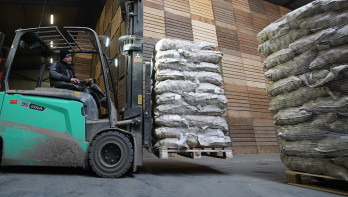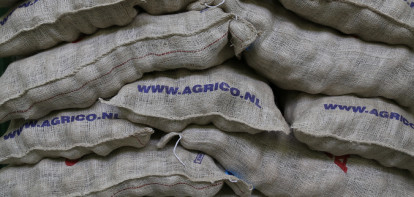Analysis Potatoes
Surprisingly high downgrading percentage of seed potatoes
The post-inspection of seed potatoes in The Netherlands is progressing well and is well underway. However, the results show remarkably high virus reactions, with the national downgrading percentage even at 23%. Lower than last year, but this percentage was not expected this year given the average aphid situation in the field this season.
The post-inspection of seed potatoes at the Dutch General Inspection Service (NAK) is progressing well according to Jeroen Winkelhorst, technical coordinator at the NAK. "We were able to start the post-inspection on time and we immediately scaled up at the start. This allowed us to keep up with the work well, and by now we are definitely over halfway through the post-inspection," explains Winkelhorst. The influx of samples for the post-inspection was also favorable thanks to the good harvesting conditions and the favorable weather.
Reduction percentage higher than expected
The results of the post-inspection surprise the seed potato sector with a downgrading percentage of 23%. It is indeed much lower than last season, which was at 31%, but last season this was also reflected in the field situation and the vector pressure, an indicator that provides insight into the potential virus pressure in a crop. This season, that was not the case. The number of aphids was moderate compared to previous years, and while virus was found in the field, it was clearly much less than in other years. This was despite the conditions being favorable for virus detection in the field due to the dark weather. The field inspection at the NAK confirms this: the percentage and number of plots downgraded due to virus were relatively low and few.
The NAK is also surprised by the downgrading percentage, although Winkelhorst mentions a possible explanation. "Looking at the aphid situation, we had estimated it to be lower. It was certainly not extreme. Yet there are many disappointments and the virus is present. I don't have a clear explanation, but later in the season there were many aphids that may have caused an infection. Not everywhere, but in certain regions, this is reflected in the aphid monitoring by the NAK." Additionally, this year a lot more PBs (Planting Stocks) were used, and when a virus reaction is found, it is immediately no longer in the S-class and therefore a downgrade.
Winkelhorst emphasizes that the current reduction percentage is essentially an interim result, and later when the post-inspection is in the final phase, it may turn out lower. This is partly due to the re-inspections that take place, which are seen almost every year. Since last year, the leaf roll virus has also been checked again, and this virus is also being detected in the post-inspection. However, there are no figures available yet.


